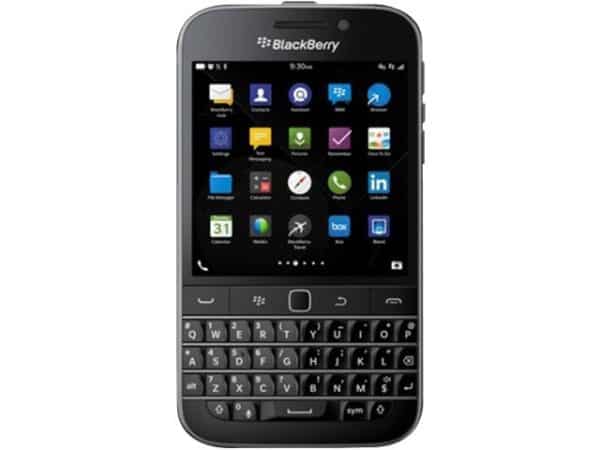BlackBerry says one more physical keyboard phone is coming


But BlackBerry is giving the physical keyboard a final sendoff.
“It’s coming”, BlackBerry CEO told Bloomberg’s Emily Chang Thursday at the Techonomy conference in Half Moon Bay, California. “We have one keyboard phone I promised people.”
In September of this year BlackBerry threw up its hands and finally admitted defeat in the hardware game.
Sort of.
The Waterloo-based company actually said it would stop the production of its own phones and instead focus on software and licensing the BlackBerry brand out to other companies to put on to the devices they build. The company formerly known as RIM, made this decision due to a major loss in profits from the manufacturing of smartphones, as anyone not named Apple simply could not command a premium price in the space anymore. With margins on the low end ground to a thin sliver, the decision was regarded by many as inevitable.
Some of BlackBerry’s most popular phones, including the BlackBerry Q10, BlackBerry Classic, and the BlackBerry Passport all had the trademark physical keyboard.
In April, Chen said the company’s smartphone business would be on the chopping block if it didn’t perform to expectations, putting a September deadline to make a decision on the division.
“I’m actually quite disappointed that our hardware business isn’t better,” Chen had said during a roundtable interview that month. “I truly believe we’re very close to break-even or profitability.”
One of the final nails in the coffin for BlackBerry was soft sales of the The Priv, an Android-based device that was launched in November, 2015, and resulted in disappointing sales numbers, some attributing the low sales to its high $700 price. Chen’s admission was that the Priv was “unfortunately too high-end and is not moving as fast as we’d like.”
So what does a BlackBerry that doesn’t make phones look like? For one, it is clearly a much smaller company than the one that went toe-to-toe with Apple in the early days of the smartphone wars. But some interesting opportunities do exist.
The connected car space is one in which BlackBerry is already playing with some success. The company’s QNX subsidiary has quietly become the leading software supplier for vehicle infotainment systems. It is deployed in more than 60-million cars, worldwide.
Perhaps an even bigger opportunity likes in the Internet of Things space.
BlackBerry Technology Solutions was created last year to encompass BlackBerry’s existing IoT platform, Project Ion, QNX Software Systems, Certicom cryptography applications, Paratek RF antenna tuning, along with BlackBerry’s extensive portfolio platform, which consists of over 44,000 patents valued between $2 billion and $3 billion.
Project Ion was created as path for BlackBerry to extend its famous encryption into Internet-enabled devices. It’s a place Chen thinks the company could become a serious player in.
“Billions of connections, generating trillions of transactions and exabytes of data daily, will require platforms that can operate securely on a global scale. No other company is in a better position than BlackBerry to provide the technological building blocks, applications and services needed to enhance productivity, improve real-time decision making and deliver on the vision of the Internet of Things,” he said at Project Ion’s launch.
Below: BlackBerry CEO: How Trump Will Impact the Tech Industry

Dylan Waddell
Writer
